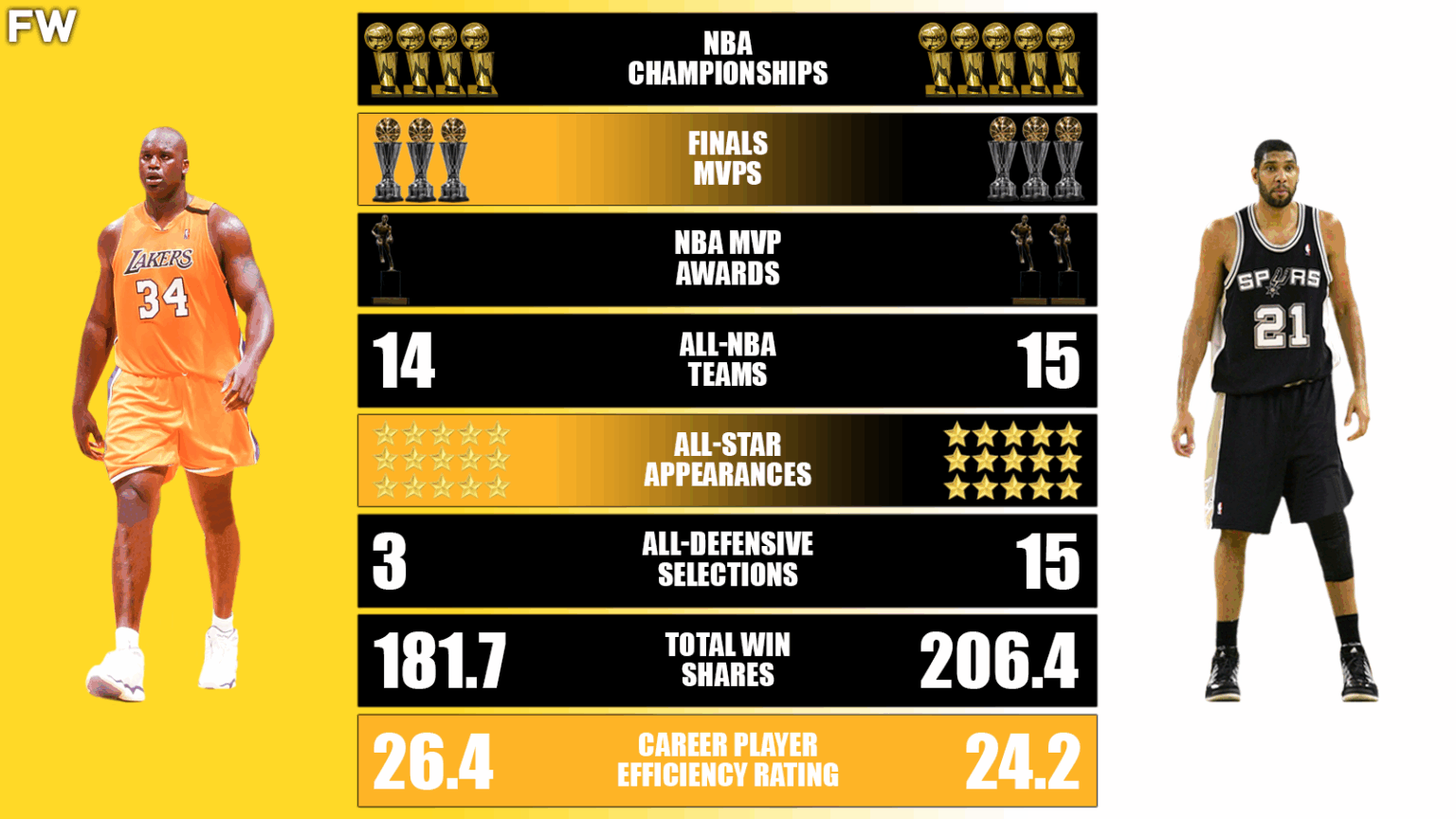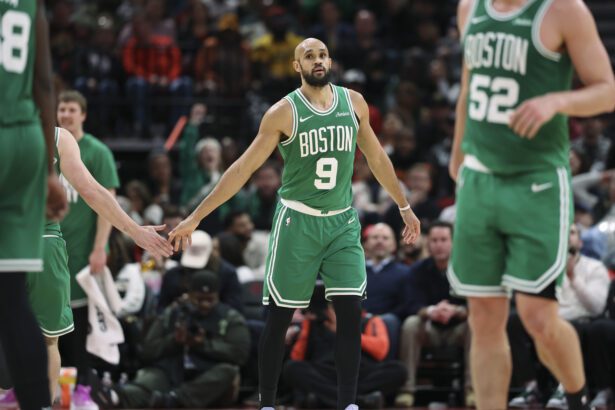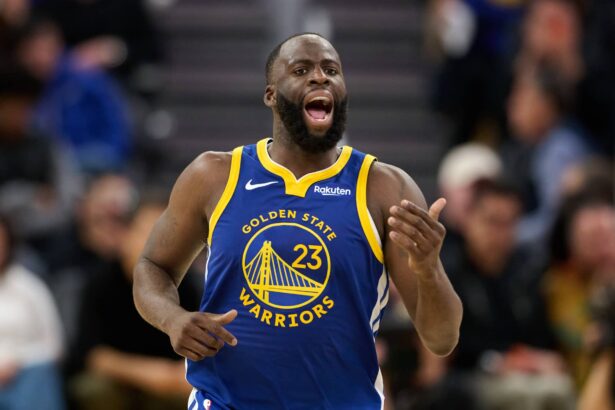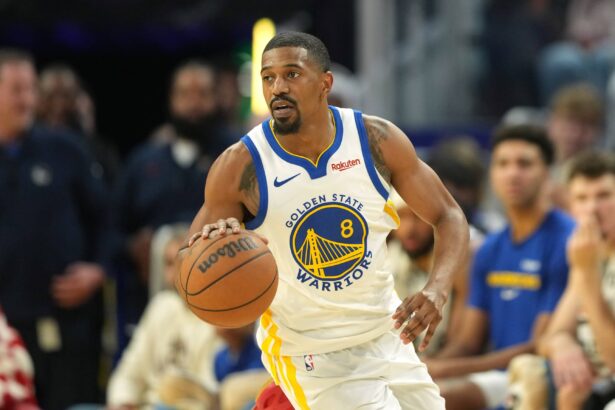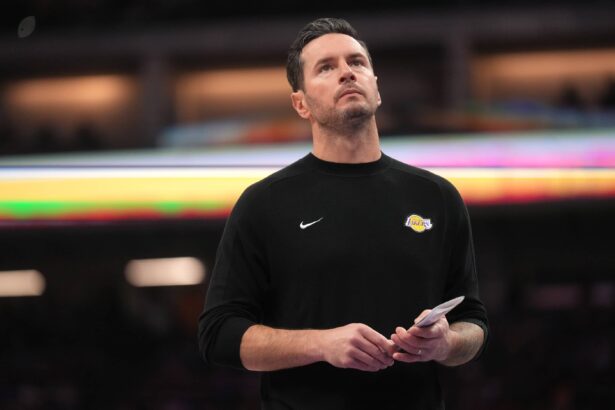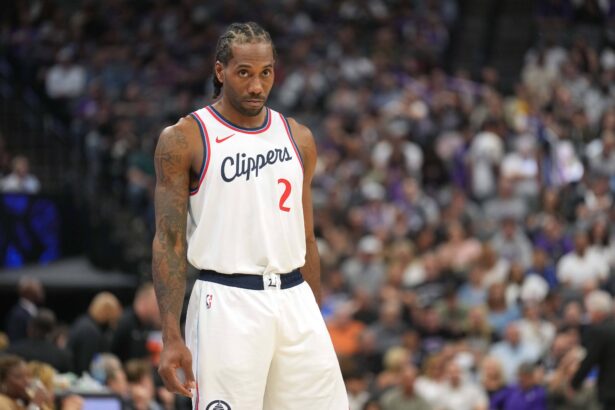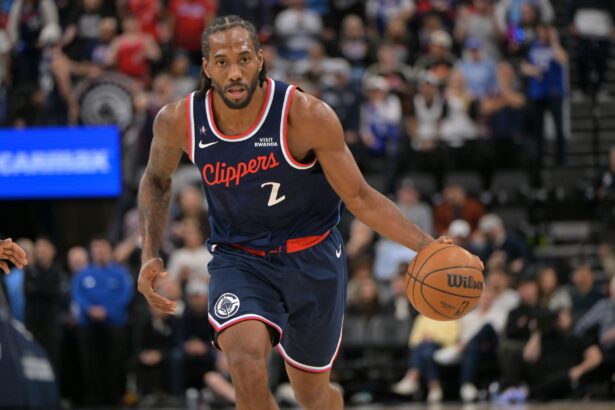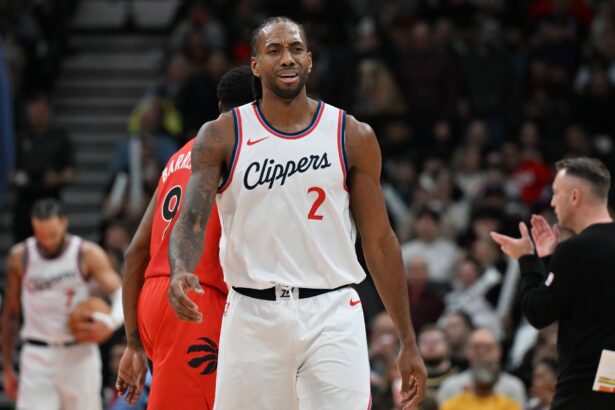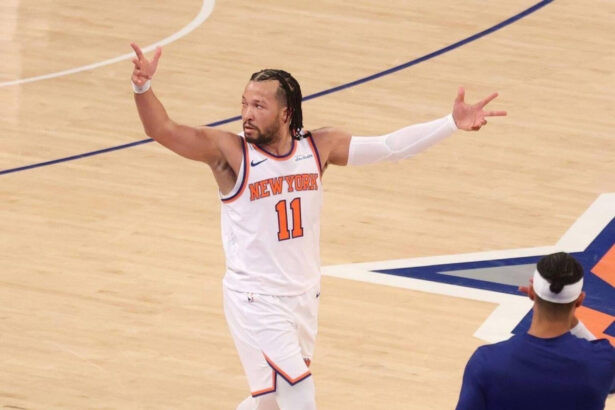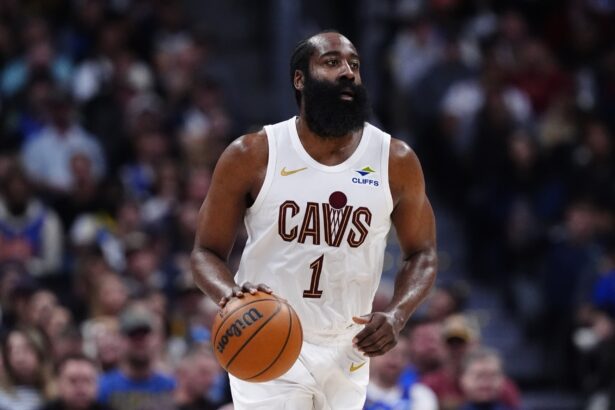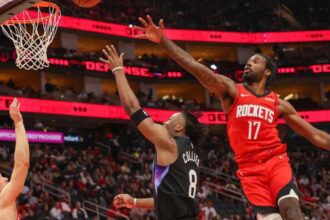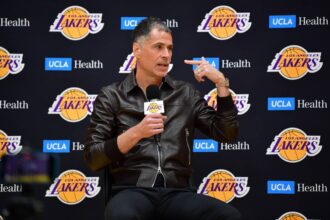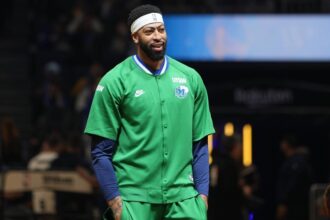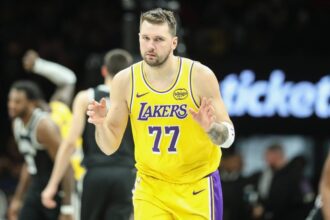In the history of professional basketball, few players have left a lasting impact on the sport, like Shaquille O’Neal and Tim Duncan. These two towering figures dominated the court during their respective careers, showcasing extraordinary talent, leadership, and versatility. Shaq, known for his overpowering physicality and larger-than-life personality, and Duncan, with his quiet demeanor and fundamental skills, became synonymous with success and revolutionized their positions in the game.
Throughout their careers, Shaquille O’Neal and Tim Duncan played in different team styles and occupied different positions on the basketball court. Shaq, a dominant center, was a force to be reckoned with, combining immense size, athleticism, and a commanding presence in the paint. Tim Duncan, on the other hand, excelled as a power forward, renowned for his exceptional fundamentals, intelligence, and consistent performance. Despite their contrasting styles, both players had an unparalleled impact on the game and became symbols of excellence in their respective roles.
When comparing their accolades, it becomes evident that both Shaq and Duncan enjoyed unparalleled success throughout their careers. The legacy left by Shaquille O’Neal and Tim Duncan extends far beyond individual statistics and accolades. These two basketball titans redefined their positions, inspired future generations, and brought an unmatched level of excitement and intensity to the game. As a result, it is only natural to compare two of the 10 greatest players of all time to make a final decision on which one had the better career. While it is never easy to compare, focusing on the most important accolades and achievements will give a definitive answer on who had the better career between Shaquille O’Neal and Tim Duncan.
Championships
Shaquille O’Neal – 4 (2000, 2001, 2002, 2006)
Tim Duncan: 5 (1999, 2003, 2005, 2007, 2014)
Shaquille O’Neal captured a total of four NBA championships during his illustrious career. He achieved three consecutive championships from 2000 to 2002 with the Los Angeles Lakers, forming a formidable partnership with Kobe Bryant and contributing significantly to the team’s success. O’Neal’s sheer dominance in the paint, combined with his scoring ability and defensive presence, proved instrumental in the Lakers’ championship runs. Additionally, Shaq added another championship to his resume in 2006 when he joined forces with Dwyane Wade and the Miami Heat, showcasing his versatility and leadership to guide his team to victory.
Tim Duncan boasts an impressive total of five NBA championships, all achieved with the San Antonio Spurs. Duncan’s consistent excellence and leadership played a crucial role in establishing the Spurs as one of the most successful franchises in NBA history. He won his first championship in 1999 and then led the Spurs to titles in 2003, 2005, 2007, and 2014. Duncan’s combination of fundamental skills, basketball IQ, and unselfish play greatly contributed to the Spurs’ success, earning him the reputation of being the cornerstone of their dynasty.
While O’Neal managed to win titles with two different teams and even accept a secondary role for his fourth championship victory, he did not win as much as Duncan. The San Antonio Spurs were a consistent force in the West and Duncan was able to win more rings with the franchise that was the model of consistency.
Advantage: Tim Duncan
Finals MVP Awards
Shaquille O’Neal – 3 (2000, 2001, 2002)
Tim Duncan: 3 (1999, 2003, 2005)
Shaquille O’Neal earned the NBA Finals MVP award three times throughout his career. O’Neal’s first Finals MVP honor came in 2000 when he led the Los Angeles Lakers to a championship victory over the Indiana Pacers. His imposing size, scoring prowess, and defensive contributions played a significant role in the Lakers’ success. Shaq’s dominance continued in the following year’s NBA Finals, where he once again secured the Finals MVP as the Lakers clinched their second consecutive championship, this time defeating the Philadelphia 76ers. He completed his trio of Finals MVP awards in 2002, guiding the Lakers to a third straight championship triumph against the New Jersey Nets.
Tim Duncan also earned three NBA Finals MVP awards over the course of his career. Duncan’s first Finals MVP recognition arrived in 1999 when he played a vital role in leading the San Antonio Spurs to their first championship, defeating the New York Knicks. He showcased his versatility, defensive prowess, and clutch performances throughout the series. Duncan secured his second Finals MVP honor in 2003 as the Spurs triumphed over the New Jersey Nets to claim their second championship. His all-around skills, leadership, and dominant play in the post were instrumental to the team’s success. Duncan’s final Finals MVP award came in 2005 when he helped the Spurs defeat the Detroit Pistons to capture their third championship. His exceptional play, consistency, and ability to control the game on both ends of the court solidified his status as one of the greatest power forwards in NBA history.
As a result, since both superstars won three Finals MVP awards apiece, there is no separation between them in this category.
Advantage: Even
MVP Awards
Shaquille O’Neal – 1 (2000)
Tim Duncan: 2 (2002, 2003)
Shaquille O’Neal, despite his immense impact and dominance throughout his career, was only awarded the MVP award once in his illustrious career. His MVP season came in the year 2000, during his tenure with the Los Angeles Lakers. During the season, Shaquille O’Neal showcased unparalleled dominance and established himself as the most dominant force in the NBA. He averaged an impressive 29.7 PPG, 13.6 RPG, and 3.8 APG, shooting an outstanding 57.4% from the field. Shaq’s sheer size, strength, and athleticism made him virtually unstoppable in the paint, as he relentlessly attacked the basket, scoring at will and drawing double and triple teams from opposing defenses. The Lakers finished the regular season with a remarkable 67-15 record, clinching the top seed in the Western Conference and eventually winning the championship.
Meanwhile, Tim Duncan won two MVP awards as a member of the Spurs. The first award came in 2002 when the big man posted a career-high 25.5 PPG, 12.7 RPG, and 2.5 BPG while shooting 50.8% from the field. The following year, The Big Fundamental put up 23.3 PPG, 12.9 RPG, and 2.9 BPG while shooting 51.3% from the field. With back-to-back MVP awards to his name, Duncan was already building a Hall of Fame legacy by the early 2000s. Only Giannis Antetokounmpo and Karl Malone have as many MVP awards as Tim Duncan while occupying the power forward position. Ultimately, Duncan won one more MVP award than O’Neal and while the center having only one award is a travesty, it is etched in history and cannot be changed.
Advantage: Tim Duncan
All-NBA Teams
Shaquille O’Neal: 14 (8 First Team, 2 Second Team, 4 Third Team)
Tim Duncan: 15 (10 First Team, 3 Second Team, 2 Third Team)
When comparing the All-NBA Team selections of Shaquille O’Neal and Tim Duncan, it becomes evident that both players were consistently recognized for their exceptional contributions to the game. The All-NBA Team selections are awarded to the best players in the league for their performances over a particular season. Shaquille O’Neal accumulated a total of 14 All-NBA Team selections throughout his career. He was named to the All-NBA First Team eight times, showcasing his dominance and impact as one of the premier players in the league. O’Neal’s presence in the paint, combined with his scoring ability, rebounding prowess, and shot-blocking skills, made him a formidable force and a consistent selection for the First Team. His eight First Team selections came in the years 1998 and 2000 to 2006.
Tim Duncan, renowned for his fundamental skills and consistent excellence, accumulated a total of 15 All-NBA Team selections over his career. Duncan’s presence on the court, his ability to impact the game in various ways, and his leadership made him a consistent choice for the All-NBA Team. He earned 10 All-NBA First Team selections, reflecting his status as one of the best power forwards in NBA history. Duncan’s First Team selections came in the years 1998, 1999, 2000, 2001, 2002, 2003, 2004, 2005, 2007, and 2013. Furthermore, he received three All-NBA Second Team selections and two All-NBA Third Team selections, further highlighting his versatility and longevity in maintaining an elite level of play.
In summary, Shaquille O’Neal and Tim Duncan amassed an impressive number of All-NBA Team selections throughout their careers. O’Neal received 14 selections, with eight appearances on the All-NBA First Team, two on the Second Team, and four on the Third Team. Duncan, on the other hand, earned 15 selections, with 10 appearances on the All-NBA First Team, three on the Second Team, and two on the Third Team, which means The Big Fundamental earns the nod in this category.
Advantage: Tim Duncan
All-Star Selections
Shaquille O’Neal: 15
Tim Duncan: 15
Shaquille O’Neal had an illustrious career that was marked by his dominance and popularity, which is evident from his impressive number of All-Star appearances. O’Neal was selected to the NBA All-Star Game a total of 15 times throughout his career, further solidifying his status as one of the most celebrated players in the league. O’Neal’s first All-Star selection came in his rookie season in 1993, where he quickly made an impact and showcased his immense potential. He went on to earn All-Star nods for 14 consecutive seasons, with his final appearance occurring in 2009.
Meanwhile, Tim Duncan has a total of 15 All-Star appearances. That is an incredible achievement for a big man because the majority of big men struggle to stay healthy and play at a star level for that long and often break down, as they take a ton of damage when battling in the paint. Duncan is also one of the most intelligent players ever, and he was able to impact the game for a very long time. In the end, The Big Fundamental does not have another advantage over The Diesel because Shaq equaled him in All-Star selections.
Advantage: Even
All-Defensive NBA Teams
Shaquille O’Neal: 3 (3 Second Team)
Tim Duncan: 15 (8 First Team, 7 Second Team)
Shaquille O’Neal, known for his dominance on the offensive end, was also recognized for his defensive contributions throughout his career. O’Neal’s first of three All-Defensive Team selections came in the 1999-00 season, coinciding with his MVP season and the Los Angeles Lakers championship run. He received his second All-Defensive Team selection in the following season, 2000-01, continuing to establish himself as a dominant defensive presence. O’Neal’s physicality and shot-blocking ability contributed to the Lakers’ defensive success and played a crucial role in their back-to-back championship titles. O’Neal’s final All-Defensive Team selection came in the 2002-03 season, as he showcased his defensive prowess with the Lakers. His intimidating presence and shot-blocking ability remained influential, as he helped anchor the team’s defense en route to another successful season.
One of the best defensive stoppers in NBA history, Tim Duncan was named to 15 All-Defensive Teams, including eight First Team selections. Duncan maintained his ability to defend the rim and block shots as he grew older. He was big enough to be a force even if he was just standing in the paint at 6’11” and 250 pounds. However, Duncan’s ability to predict what the opposition team’s players would do allowed him to create an enduring legacy. While there might be some out there who credit Duncan’s incredible success to Gregg Popovich and the San Antonio Spurs’ elite defensive system, Duncan was the cog. The Big Fundamental has a defensive advantage over 99% of players, including the illustrious center.
Advantage: Tim Duncan
Total Win Shares
Shaquille O’Neal: 181.7
Tim Duncan: 206.4
Win Shares is a statistic that tries to allocate a team’s wins for each player on the roster. For example, Kareem Abdul-Jabbar owns the single-season record for Win Shares with 25.4 during 1971-72 on a Milwaukee Bucks team that won 63 games. In terms of contributing to a winning side and helping his side to win games consistently, it is obvious Tim Duncan has a better win-share rating than Shaquille O’Neal.
Shaquille O’Neal has a win shares rating of 181.7, a solid figure but clearly less than Tim Duncan’s. The superstar center, for some reason, was not as important to his team with regards to win-shares when compared to The Big Fundamental. O’Neal is obviously a player that impacts winning as the most dominant player ever, but this particular statistic does not reflect that when comparing the Lakers star to other all-time great players.
Tim Duncan’s win share rating ranks 7th all-time behind Kareem Abdul-Jabbar, LeBron James, Wilt Chamberlain, Karl Malone, Michael Jordan, and John Stockton. The big man influences the game in various ways, including having a high field goal percentage and defensive stats, while his rebounding was off the charts. Duncan’s win share rating is very impressive, and it blows most players out of the water except for the six other players listed above. Therefore, Duncan has another major advantage over Shaq.
Advantage: Tim Duncan
Career Player Efficiency Rating
Shaquille O’Neal: 26.4
Tim Duncan: 24.2
Player Efficiency Rating, better known as PER, is a statistic created by John Hollinger, whose goal is to give each NBA player a comprehensive rating. Hollinger’s PER metric is unique because it combines a player’s positive and negative contributions on the court.
With a PER of 26.4, Shaquille O’Neal is the 5th-best player of all time, according to the statistic. O’Neal’s numbers were beyond elite for his career, posting 23.7 PPG, 10.9 RPG, and 2.3 BPG on 58.2% shooting from the field. Shaq was dominant on the court because there was no answer for him when it came to stopping the big man inside the paint. O’Neal was automatic around the rim because he would often dunk opposing players through the rim. O’Neal clearly did more good things on the court than bad, which is why only Michael Jordan, Nikola Jokic, LeBron James, and Anthony Davis are ahead of him in all-time PER rankings.
Tim Duncan ranks 17th all-time with a PER of 24.2. Duncan has a positive influence on winning due to his incredible two-way skill set. Duncan managed to have shooting splits of 50.6% FG and 69.6% FT while averaging a career 19.0 PPG, 10.8 RPG, and 2.2 BPG. Given that Duncan played for 19 years and consistently discovered ways to improve his performance in the biggest games, he is simply elite on any level. Even though O’Neal earns the edge over Duncan in career player efficiency rating to earn his only category advantage.
Advantage: Shaquille O’Neal
Final Score
Tim Duncan vs. Shaquille O’Neal 5-1
In the end, superstar power forward Tim Duncan has a career advantage over Shaquille O’Neal. Duncan was fortunate enough to play on one of the greatest franchises of all time that was a model of consistency, capturing five NBA titles to go along with three Finals MVP awards and two MVP awards. Those three categories are the most important in this career comparison especially considering both superstar centers won as many Finals MVP awards. Duncan also had the edge in win-shares rating and All-Defensive Team Selections, showing he was a better two-way player than O’Neal.
Finally, Duncan also had the edge in All-NBA Team selections, earning an extra appearance over Shaq. Those are major categorical differences between the two players, even if Shaq has the 5th-highest PER of all time. While there will be a bulk of NBA fans and media members who would place O’Neal above Duncan in terms of all-time player rankings, Duncan’s career comparison advantage would be a boost to the Spurs legend’s legacy. Duncan is without a doubt a better defensive player than O’Neal, and never had beef with any of his teammates, which is why he was able to stay consistent as a winner for the Spurs organization.
O’Neal’s beef with Kobe Bryant might have altered his career trajectory because had the superstar duo stayed together, the big man would have had far more than four NBA titles and three Finals MVPs. O’Neal would have also benefitted from Kobe’s presence as a young player, which could have extended his career and possibly lead him to have more All-Star and All-NBA appearances. Regardless, Tim Duncan had a better career than Shaquille O’Neal, and the accolades clearly show this.

